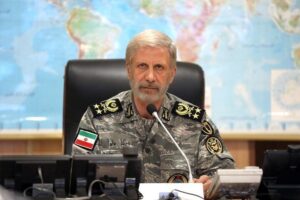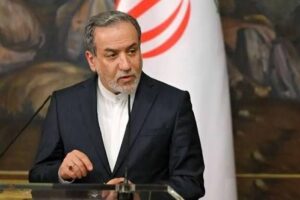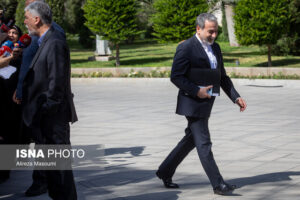For decades, a single phrase—“Death to America”—has echoed through the halls of Congress, presidential debates, and cable news studios, cited as definitive proof that Iran is an implacable enemy and even an existential threat to the United States. The slogan has been invoked repeatedly to support sweeping sanctions, the “maximum pressure” campaign, and military strikes on Iran’s nuclear facilities. It remains one of the most persistently misunderstood and politically instrumentalized expressions in modern international discourse.
Contrary to the prevailing narrative, “Death to America” is not a declaration of war against the American nation. Iran’s Supreme Leader, Ayatollah Ali Khamenei, articulated the meaning plainly in a 2015 speech: “It is also clear that ‘Death to America’ does not mean death to the people of America. The people of America are like other peoples. It means death to American policies and arrogance.” In Iranian political culture, the phrase functions more like a protest slogan—an outlet for anger over perceived foreign injustice—than a policy prescription.
For many Iranians, the slogan is a shorthand expression of frustration with what they view as a deeply entrenched and consistently hostile posture in U.S. foreign policy toward Iran—one that has persisted across administrations, irrespective of Iran’s conduct or overtures. In 1953, the CIA orchestrated a coup against Iran’s democratically elected Prime Minister Mohammad Mossadegh, reinstating the Shah and dismantling a popular government. The result was 25 years of autocratic rule, firmly backed by Washington. In the 1980s, as Iraq launched a devastating war against Iran, the United States provided intelligence, satellite imagery, and diplomatic cover to Saddam Hussein—even as he deployed chemical weapons against Iranian cities and soldiers.
These episodes are not isolated. They form a pattern in which Iranian gestures of cooperation are met with indifference—or worse, hostility—deepening the perception that U.S. enmity toward Iran is structural, not behavioral.
In the late 1990s, Iran quietly supported the Clinton administration during the conflict in the former Yugoslavia, helping to stabilize post-war Bosnia. That goodwill was met with silence and no meaningful shift in relations. Following the September 11 attacks, Iran played a key role in the U.S.-led effort to remove the Taliban from power. Iranian diplomats worked constructively at the Bonn Conference and supported the formation of Afghanistan’s post-Taliban government. Months later, President George W. Bush delivered his now-infamous “Axis of Evil” speech, lumping Iran with Iraq and North Korea—an act that, in Tehran, was seen as both a betrayal and a strategic slap in the face.
In 2018, the United States unilaterally withdrew from the Joint Comprehensive Plan of Action (JCPOA), despite Iran’s verified compliance with the agreement. Washington then reimposed a sweeping regime of sanctions under the so-called “maximum pressure” strategy. The primary victims were ordinary Iranian citizens, as American officials spoke unapologetically of efforts to “cripple” and “crush” Iran’s economy. Most recently, in June 2025, while diplomatic negotiations were still underway, the United States conducted direct airstrikes on Iranian nuclear facilities—cementing the view in Tehran that U.S. hostility is enduring and systemic.
Veteran British journalist Robert Fisk once admitted that he used to scoff when Iran’s revolutionaries described the United States as “the center of world arrogance.” But after covering multiple Western interventions in the Middle East, he came to understand the phrase’s resonance. This context shows that the slogan is aimed squarely at U.S. government policies—not at the American people, their culture, or way of life—despite the spin pushed by Israeli warmongers and Zionist media. It underscores the difference between symbolic defiance and genuine threats.
U.S. actions—such as tearing up international agreements, imposing sanctions that deprive civilians of basic needs, and launching military strikes on Iranian soil—have had concrete, often lethal consequences. These are not theoretical gestures of protest; they are policies that inflict real damage and deepen mistrust.
Nevertheless, the narrative that Iran poses an “existential threat” to the United States continues to circulate. The claim is not only unfounded—it borders on the implausible. The United States is a global superpower, equipped with the world’s most sophisticated military and the largest nuclear arsenal on earth. Iran, by comparison, is a regional actor with limited strategic reach. There is no credible indication that it possesses either the intent or the capability to endanger the American homeland.
Indeed, the continued conflation of Iranian rhetoric with existential danger serves only those who benefit from permanent tension—particularly actors in Israel’s current genocidal government and in Washington’s more hawkish foreign policy circles. Their agenda depends on portraying Iran not as a sovereign state with legitimate grievances, but as a rogue actor beyond reason.
The phrase “Death to America” is best understood not as a doctrine, but as a reaction—a political and emotional response to decades of perceived betrayal, coercion, and violence. It is not rooted in religious ideology or long-term strategic calculus. It reflects the accumulated resentment of a nation that has, time and again, extended cooperation only to be met with hostility.
This reactive nature also means the slogan is not immutable. If the United States rethinks its approach—substituting pressure with respect, and confrontation with dialogue—Iran’s posture can evolve as well. History shows that when Washington treats Tehran with seriousness and reciprocity, Iran is capable of engaging constructively. But as long as slogans are mistaken for strategies and symbolic defiance is interpreted as a declaration of war, diplomacy will remain hostage to myth.
Understanding this slogan for what it truly is—a mirror held up to American behavior—may be the first step toward breaking the cycle of animosity and giving diplomacy a genuine chance to succeed.








